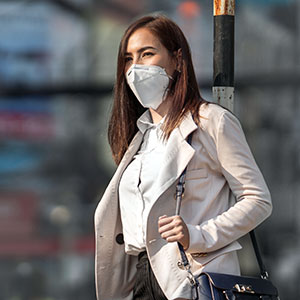
Many states, as well as many jewelers, are reopening. That’s good news.
Or at least, it would seem to be good news. Not everyone is cheering. Mall traffic is “way down.” Shoppers remain nervous. And if COVID-19 again starts to spread in a big away, we risk another forced lockdown or perhaps a de facto lockdown, as people will be afraid to leave their homes.
There is still debate about whether certain states or jurisdictions have jumped the gun, if others are waiting too long, or how things should be handled when everything reopens. Nobody truly knows the answers to those questions yet—just like we don’t know the answers to all the questions about COVID-19. It’s still a new disease. And we’ve had limited experience with pandemics.
What we do know is that people are starting to have very different opinions on these questions, as any look at social media will tell you. (Oy.) At the start of the crisis, the theme was “we’re in all this together.” No one believes that anymore. In the last month or so, it’s been clear that the United States is as un-“together” as ever. People see these issues from different frames of reference.
This is not the forum to debate those issues. (Please do not in the comments.) If you’re a business owner who has had to dip into your savings to get by, or COVID-19 hasn’t been a problem in your area, or you listen to certain news sources, you may see things one way. If you live in an area that’s been ravaged by this disease, or you’re a white-collar worker who can do your job from home, or you look at certain news sources, you may see things another way.
A few years back, everyone was excited about blockchain (remember that?), which was supposed to be a “sole source of truth.” In the United States, we lack a sole source of truth. Everyone now gets their “truth” from different places.
That’s part of democracy. Yet, things are particularly fractured now, and views differ even over things once considered sacrosanct, such as science or official death counts.
What brings this up is a discussion I had with Forevermark chief executive officer Nancy Liu, who is based in China. She says that, in most—but not all—Chinese cities, mall traffic is now up to 90% from where it was pre-virus. Last week, she says, some Chinese luxury brands had their best week ever.
In many ways, China has an advantage here—it has had experience with epidemics before, so there is a general acceptance of wearing masks and social distancing. And, of course, even if citizens don’t agree with those measures, they have little recourse: China isn’t a democracy. The government is the sole source of information, whether or not it’s the sole source of truth.
But Liu feels that most Chinese citizens truly believe that the government has been cautious, and the health situation is better. They may have been forced to stay home, but no one is making them leave and hit the malls. Yet they are. And, in fact, it took more than a month for many to feel comfortable going out, Liu says.
Here, there is a lot less comfort that COVID-19 is under control. Plus, the United States is never going to be China. It is a divided country, sometimes bitterly so.
Which is why Charles Stanley, president of Forevermark US, feels we will have a much choppier recovery than other countries. Not only is there a patchwork of rules, with every state and local jurisdiction making its own calls, but people also hold differing opinions about those calls.
Until the COVID-19 threat is truly vanquished, some people will have misgivings about leaving their homes. That will likely mean less mall traffic. So, what is a jeweler to do? Stanley notes that the two retail experts who spoke at the Forevermark virtual conference discussed the importance of making consumers feel safe and secure going forward.
Stanley was impressed with Macy’s safety guidelines—which go beyond what the government currently requires. He hopes those will help lure back frightened customers—because, ultimately, that’s who Macy’s needs to reach. The people who don’t fear COVID-19 will go out anyway.
As I wrote when all this started, I believe that face-to-face interaction will always be part of the human experience–even if those faces are partially covered by masks.
In a recent Slate article, author Christina Cauterucci discussed her experiences with Zoom calls:
[T]his quarantine has given 21st century humanity its first glimpse at what it might feel like to confine even more of our lives to the world behind the screen—and it’s a deeply unsatisfying view. Video chatting is exhausting. Livestreamed events are a snooze. Turns out virtual life is a sorry substitute for a real one.
People want this to be over. They want to go out. I can’t wait to get back to my home.
But they need to feel safe doing so. That’s a challenge for jewelers, yet it’s also an opportunity. Even if you take issue with people’s fears, you can’t ignore them. Retailers who go above and beyond to ensure their customers’ safety will be rewarded. And those who don’t could risk a number of issues, including lawsuits.
Right now, not everyone trusts the government to keep them safe. They don’t trust certain businesses to keep them safe. But if you, as a jeweler, can demonstrate you are really committed to keeping them safe, they will trust you.
(Photo: Getty Images)
- Subscribe to the JCK News Daily
- Subscribe to the JCK Special Report
- Follow JCK on Instagram: @jckmagazine
- Follow JCK on X: @jckmagazine
- Follow JCK on Facebook: @jckmagazine